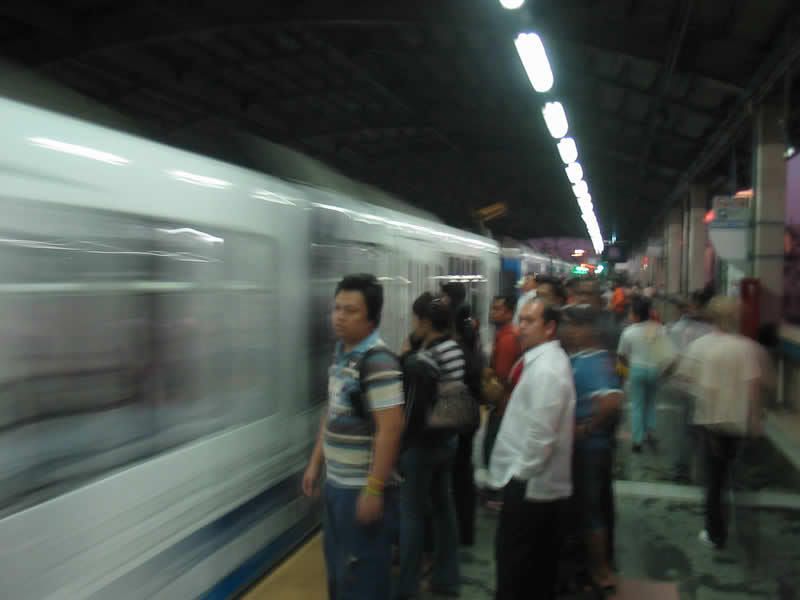measures of success

These were my comments on Dave Llorito's latest post on the "success" of the MRT and how changing the pricing could decongest it and reduce the required subsidies:
Here's the news: very, very few mass transit systems in the world are profitable. I think only HK's metro and Tokyo's system make money. Even NYC's MTA is short on cash. Most systems are heavily subsidized.
Why? Because the governments account for the externalities of faster transport for workers, which, in theory, equals more productivity. If the problem is bad service due to congestion -could it first be solved by more trains and more frequent trips? Of course, that does raise the operating costs.
That said, i'd trade you an increase in fares to cover actual operating costs of the mrt IF you're willing to raise road and gasoline taxes to cover total environmental costs of driving (not just the road maintenance costs).
Better management, yes. recovering the true costs, sure -as long as you account for the public goods generated and as long as you even up the playing field by asking road users to pay the true costs of driving, too.
Oh, and I'm for variable pricing. maybe a two-tiered system (or a third for weekends).
One other way we can look at leveraging our light rail investments and paying for the operating costs is to use value capture strategies: Increase the property tax for properties within a certain perimeter around the train stations (say 2/3 of a kilometer). -they benefit from the pedestrian traffic and location so why not capture that value?
Increase the real estate taxes around the stations -and while you're there, increase the densities and height limits (floor area ratios) of the zone, too. You'll get more housing and more office space next to the train stations -making the train even more convenient.
And, oh, pair that up with a program to subsidize not just the rail, but part of the housing units generated by the increased density around the transit station. to encourage more people to live within walking distance of the transport investment.
Image credit: by vertex
from the Skyscraper Forum
from the Skyscraper Forum

4 comments:
I like the solutions proposed by AWBHoldings
http://awbholdings.com/blog/?p=457
the mrt needs to raise fares in order to operate more efficiently. it's too low,IMHO, against the high cost of maintenance.
Helo!
Nice posting, thank you.
I wish you a good end of 2007 and a good year of 2008.
p. dragonfly,
There are many components to efficiency, e.g. price vs. ridership vs. carrying capacity vs. headways (time between trains) vs. # of cars per train.
I don't know whether the fares are too low, I'd leave that to the economists to decide at what price level you get optimum returns vs. maximum ridership. -Whatever the equation is, it should account for the externalities that you want to encourage (e.g. -productivity gains from time, reductions noxious and greenhouse gases).
Bottom line: improving the service isn't just about raising fares.
Post a Comment